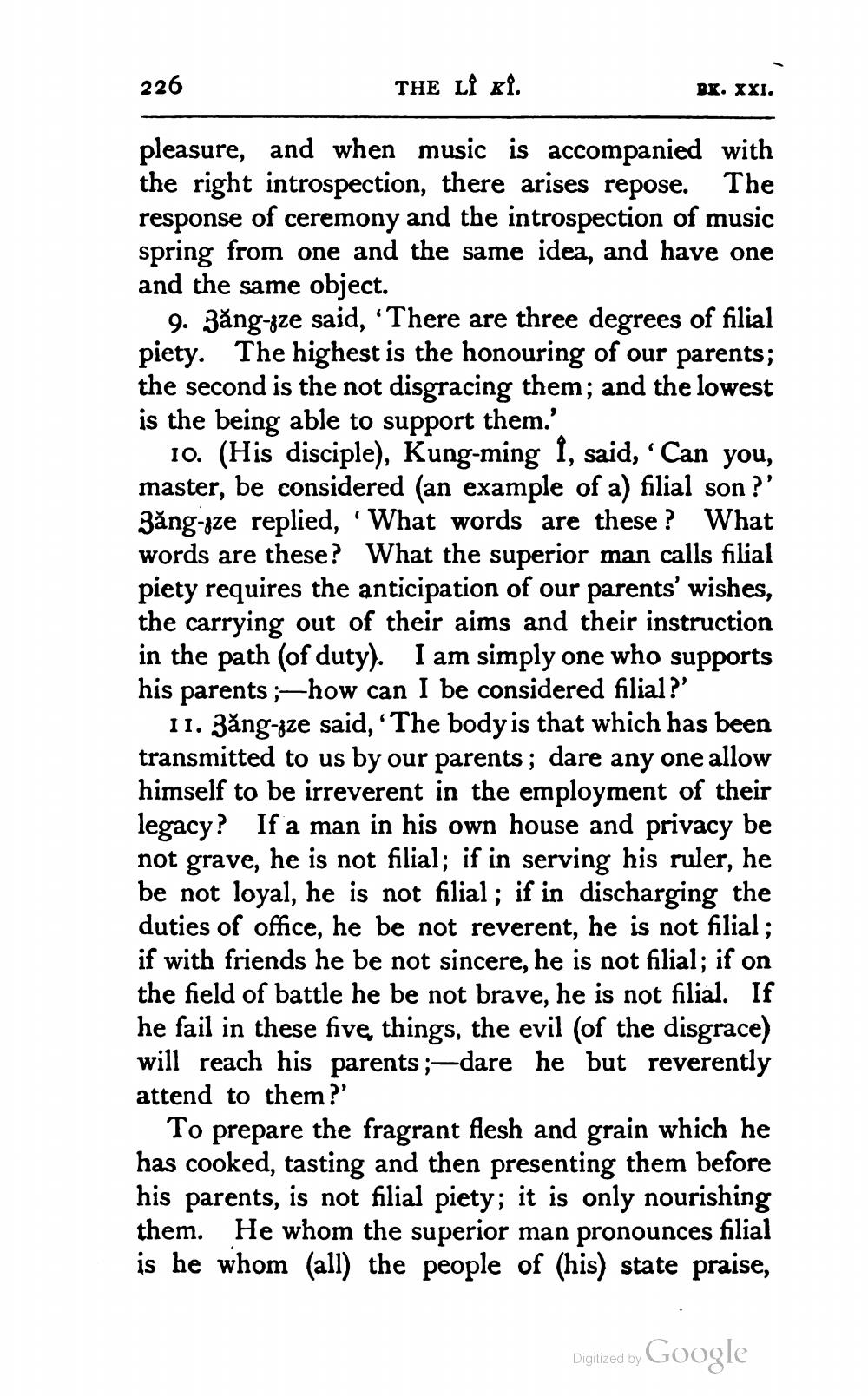________________
226
THE LÎ kt.
BK. XXI.
pleasure, and when music is accompanied with the right introspection, there arises repose. The response of ceremony and the introspection of music spring from one and the same idea, and have one and the same object.
9. 3ăng-zze said, “There are three degrees of filial piety. The highest is the honouring of our parents; the second is the not disgracing them; and the lowest is the being able to support them.'.
10. (His disciple), Kung-ming 1, said, 'Can you, master, be considered (an example of a) filial son ?' Zăng-zze replied, 'What words are these? What words are these? What the superior man calls filial piety requires the anticipation of our parents' wishes, the carrying out of their aims and their instruction in the path (of duty). I am simply one who supports his parents ;-how can I be considered filial?'
11. Zăng-gze said, 'The body is that which has been transmitted to us by our parents; dare any one allow himself to be irreverent in the employment of their legacy? If a man in his own house and privacy be not grave, he is not filial; if in serving his ruler, he be not loyal, he is not filial; if in discharging the duties of office, he be not reverent, he is not filial; if with friends he be not sincere, he is not filial; if on the field of battle he be not brave, he is not filial. If he fail in these five, things, the evil (of the disgrace) will reach his parents ;—dare he but reverently attend to them?'
To prepare the fragrant flesh and grain which he has cooked, tasting and then presenting them before his parents, is not filial piety; it is only nourishing them. He whom the superior man pronounces filial is he whom (all) the people of (his) state praise,
Digitized by Google




